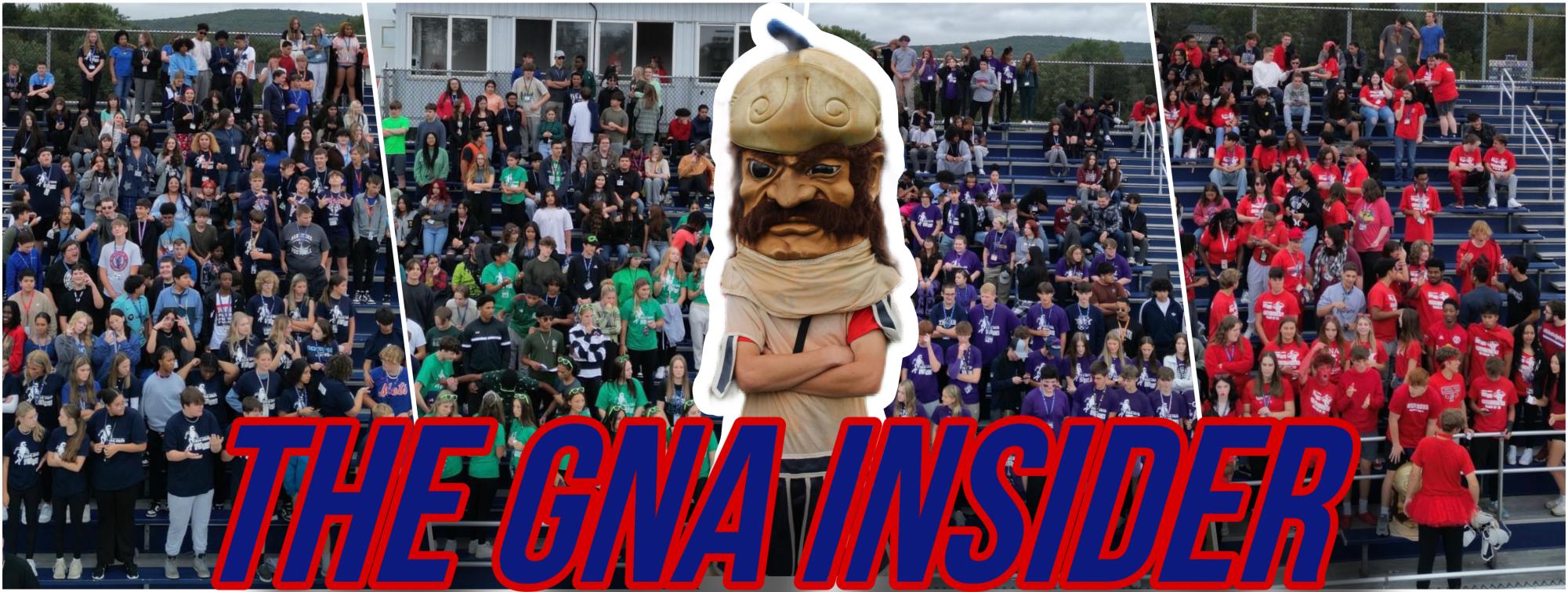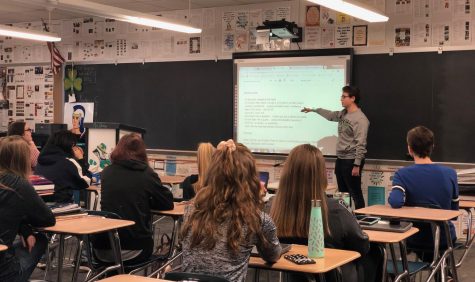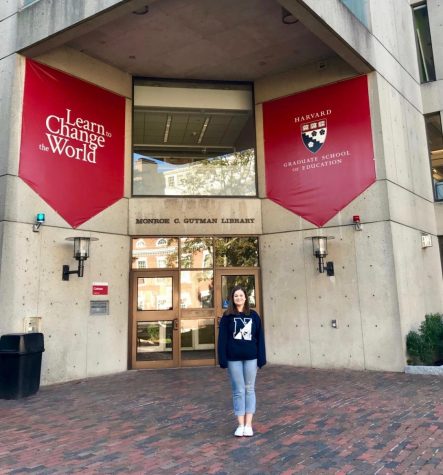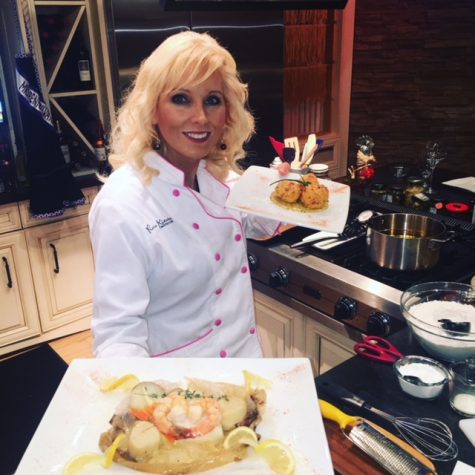Where are they now? Robert Oltra: GNA ’00

 Throughout the few years spent in elementary and high school, every student has their own dreams of becoming successful. Although achieving one’s own goals may take up a large amount of time and effort, it becomes worth it in the end. It may not be simple, but focusing on such a far-reaching objective while expanding your horizons can lead you to success. We, as students, deal with trying to accomplish short-term goals every day, whether it is showing up to class on time, getting straight A’s, or solving daily social and personal problems. In order to meet the expectations of our long-term goals or our life careers, we first have to discover the ways to surpass all our troubles that are associated with our short-term goals.
Throughout the few years spent in elementary and high school, every student has their own dreams of becoming successful. Although achieving one’s own goals may take up a large amount of time and effort, it becomes worth it in the end. It may not be simple, but focusing on such a far-reaching objective while expanding your horizons can lead you to success. We, as students, deal with trying to accomplish short-term goals every day, whether it is showing up to class on time, getting straight A’s, or solving daily social and personal problems. In order to meet the expectations of our long-term goals or our life careers, we first have to discover the ways to surpass all our troubles that are associated with our short-term goals.
In relation to this assertion, Robert Oltra, a GNA Alumni, may have never thought that sitting in a class that didn’t have anything to do with his vision of his life after high school would get him anywhere, but it soon taught him that one must get past all the small things before they can accomplish the big things. Rob is currently known for accomplishing his ultimate ambitions and rising to the top by working as a Field/Segment and Associate Producer on Dancing with the Stars, as well as on many other projects. Throughout his high school career, he did not have this specific career path in his choice of mind, but now realizes that it has become the most intellectual opportunity he has chosen. He now wants to magnify his ideas and accomplishments to students currently at GNA and around the area who are striving to reach such goals of success as well. The GNA Insider had the opportunity to sit down and ask him some questions:
1.What extra-curricular activities were you involved in at GNA?
I played baseball, wrote for the school newspaper and did the photography for it as well.
2.What advice do you have for current GNA students regarding extra-curricular activities?
Sports I think obviously provides you with an opportunity to be part of a team. In most careers you’ll find that working well in a team is necessary and required. Especially in my industry, it takes hundreds and sometimes thousands of professionals working together to put a film or television show on screen. For me personally, getting my hands on a camera for the school newspaper, helped unlock an interest that I may not have realized could be a career. Although, I’m not a professional still photographer, what I do is all within the same visual medium, being the photographer for the school newspaper was my first time looking through a lens with a purpose. I’ll also add that there were extra-curricular I wish I had participated in. Chorus in particular is something I wish I had not abandoned. Even though I had no interest in becoming a professional singer, I feel the emotional expression in music could have helped me as a story teller. So I guess this advice really is as simple as: don’t be afraid, for whatever reason, to take advantage of the extra-curricular that are available to you.
3.What were some of your favorite classes and teachers throughout your time in high school?
AP English with Mr. Carey Sr. gave me the opportunity to have an impressive camera in my hands and I truly enjoyed the discussions around the novels we read. Possibly the single most influential class was Theatre Arts with Karen Phair. No I’m not an actor, nor did I want to become one. What this class taught me most was how to tell a compelling story and create something from my own imagination to perform for others. Acting out a story that I created, expressing emotion and evoking it from others was a powerful feeling. I’m thankful for having that experience in just the tenth grade.
4.What inspired you to major in Film and Television Production? Why did you decide this route?
Like many seniors, I wasn’t really sure what I wanted to do as a career. I had interests and I knew I would go to college, but where it went after that I didn’t have figured out. Looking through college programs, I focused on communications and visual arts. It wasn’t until my freshman year of college, that I really understood what a Film and TV Production degree entailed, but it sounded like the closest thing to encapsulating the years of interest I had in film and television growing up. After my first actual production class as a sophomore, making my first film, that’s when I felt this was what I was supposed to be doing.
5.Who in your life has made the biggest impact on you and seems to show a copious amount of support?
My Mother and Father, as well as my wife, Erica, are probably my biggest supporters. My parents instilled in me a work ethic that I feel it one of my greatest assets. Work hard, don’t burn bridges and be enjoyable to be around, are absolutely crucial in my industry. On a film set you might be working 10 to 16 hour days. Nobody likes to be around someone complaining for that many hours. My parents certainly questioned at times, “What will you do with a film degree?” but I didn’t look at that question with fear. I used it to drive me to prove this was the right choice, this is truly what I was interested in doing with my life. I still think I made the right choice. My wife is not only one of my biggest supporters, but she may be my single biggest inspiration. She’s a physician, a pediatric eye surgeon at that! The work she does every day pushes me to work hard and continue to achieve my goals. It also puts things in perspective for me, because no matter how bad of a day I may have had, nobody’s eyesight was in my hands.
6. Do you see yourself expanding your career in the next few years?
If so, what do you see yourself pursuing? I’m currently pursuing writing for television and maybe some day film. I spent many years as a, “storyteller” molded non-scripted programming, but my goal is to write fiction. Hour-long scripted drama is what I’m mostly interested in, shows like MadMen, Breaking Bad, The Americans. I recently had the fortune of working on a project for Amazon Studios, where I assisted the writing team and the creator, a writer from The Americans on FX, with historical research and pitched ideas to that team of how to include that research into story lines. I was also given the rare opportunity to write some small parts of the scripts. While I am working full-time as an Archival Producer, currently at VICE Media, I regularly write my own material on my own time. It’s what you need to do to prove to someone you can write when the opportunity arises to share your work. You need great writing samples and you need to treat it like a second job.
7. Explain your role on the popular TV series Dancing with the Stars. What was that like?
On Dancing with the Stars, which I worked on for 8 seasons (4 years), I started as an Associate Producer and was promoted to Field Producer after two seasons. As an Associated Producer (AP) I was assisting the Field Producer’s by prepping gear (camera, audio, lights) sometimes filming the B (2nd) camera on a shoot, as well as taking notes on set of what was happening in order to track the story we would tell that week for each celebrity couple. As a Field Producer the segment was my responsibility and I did all of the filming for my designated couple. Also, I wrote the questions for and conducted all necessary interviews with my assigned celebrity and dancer. It was my responsibility to have all of the elements to make an entertaining segment: interviews, footage and figured out the story, in order for an editor to put it together and prepare for air. For multiple seasons, I was the sole Field Producer for the second night, “The Results” show. Because there was no competition on this night, we had to pitch ideas for small segments to fill up a two or sometimes three hour show. Often it was something comedic, like a spoof on MTV’s cribs or other times it was more journalistic, like the time we did a piece after the Haiti earthquake in 2012, featuring a group of Haitian ballroom dancers. All of which had faced tragedy, some of which lost children and found the art of dancing as a means to express their emotion. These journalistic pieces were some of my favorite. Working in this business, you’ll meet people from all walks of life. It’s easily one of the most enjoyable parts of my job. Hines Ward former wide receiver from the Pittsburgh Steelers and Oscar winner Marlee Matlin, were two of the nicest and interesting people you could ever hope to work with. I had the pleasure of being their producer, as well as many others, but these two absolutely stick out in my mind.
8. What project has been the most rewarding overall?
I think the project that has been most rewarding is, COSMOS: A Spacetime Odyssey. I believed in COSMOS’ message of science and bringing educational programming to primetime network television. I worked long, hard hours with editors, directors, writers, visual effects artists and producers to help create a visually brilliant show, while teaching us about the planet we live on and what lies beyond. As the visual researcher, I found and provided all of the footage that was not shot by our production team, as well as assisted the visual effects team, finding footage and photos for them to create different worlds. Whether it was a retired Scottish man who lived on a boat providing me rare footage of some of the most beautiful starling murmurations or helping the visual effects team turn a volcano in Hawaii into looking like the surface of Venus thousands of years ago, there was an overwhelming sense that the world was really helping to make this show.
All photos courtesy of Robert Oltra.





